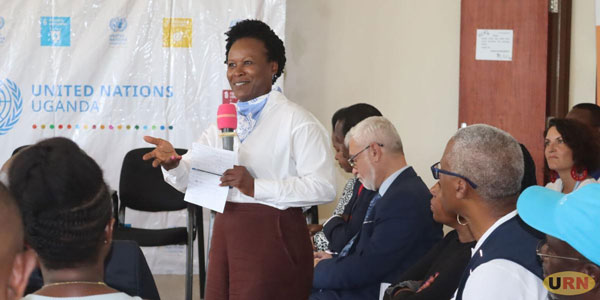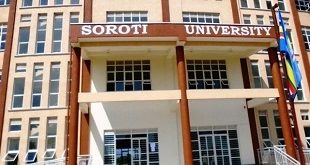
Gulu, Uganda | THE INDEPENDENT | Susan Ngongi Namondo, the United Nations (UN) Resident Coordinator in Uganda has blamed the country’s slow progress toward achieving gender equality on negative social norms against women and girls. Namondo says there is still little belief in the country and parts of Africa that women and girls deserve as much out of development efforts as boys and men arguing that such norms impede the achievement of Sustainable Development Goal 5.
Sustainable Development Goal (SDG) 5, one of the 17 SDGs aims adopted by world leaders in 2015 aimed at achieving gender equality and empowering all women and girls by 2030.
Speaking at a dialogue on SDG in Gulu City on Monday, Namondo says the country, like other African states, is struggling to achieve the target of gender equality because of social norms that need to change.
The dialogue brought in numerous stakeholders who deliberated on the progress of the SDG implementation and actions needed to be undertaken by the government and UN to accelerate the attainment of SDGs by 2030.
Namondo notes that the vice if not fundamentally changed will affect development and see the country taking a much longer period of time to achieve its target on SDG 5. She cited that the UN already estimates that it will take approximately 300 years to achieve gender equality arguing that one of the hindrances attributed to the stagnation is negative social norms against women.
Uganda is among the 193 UN member states implementing the 17 SDGs adopted by the UN in 2015 as a universal call to action to end poverty, protect the planet, and ensure that by 2030 all people enjoy peace and prosperity. Namondo however notes that the progress of achieving the SDG target is slow and highlights that the high fertility rate in the country has seen a near-double population rise that is straining the government’s ability to keep up with development.
She says globally, only 15 percent of the SDG implementation has been achieved while in Uganda, the National Development Goal III to which the SDG is aligned is only 17 percent on track and called for an accelerated effort to have them achieved by 2030. “We really have to be thinking really seriously about how we will accelerate progress because if the development goals are not met when we don’t reach the National development plans aspiration, it means that many Ugandan lives won’t be improving in the way that it should have and that’s a problem,” she says.
Pascal Byarugaba, the Program Monitoring and Evaluation Specialist at the SDG secretariat in the Office of the Prime Minister however says the country is on the right track in the implementation of SDGs albeit with minor challenges. Byarugaba says out of the 201 global SDG indicators applicable to Uganda, the government has been able to make good progress from 41 SDG indicator points in 2016 to 135 SDG indicator points adding that they are hopeful, that all the indicators will be achieved by 2030.
He notes that in a bid to achieve the SDG targets in the next seven years, the government has come up with six major commitments that will inform the National Development Plan 4 (NDP4). The commitments according to Byarugaba include accelerating SDG financing, trade and investment, building resilience and leaving no one behind, harnessing the potential of science, technology, and innovation, and harnessing the potential of data among others.
Various stakeholders during the dialogue, however, requested the United Nations’ continued support towards the realization of the 17 UN SDG targets in the Acholi Subregion. Gulu City Council Mayor Alfred Okwonga observed that the impacts of the two-decade Lord’s Resistance Army (LRA) insurgency in the Sub-region have affected economic development resulting in poverty. He suggested the need for the UN and its partner organizations to strategize and support the region in eradicating poverty.
Gulu University Vice Chancellor, Prof George Openjuru Ladaah called for action on the destruction of the environment for charcoal production which is so rampant in the Sub-region given wood fuel is a cheap source of energy. The United Nations will today (Tuesday) mark its 78th anniversary in Gulu City since its founding on 24 October 1945.
In a build-up to the national commemoration expected to be presided over by Prime Minister Robinah Nabbanja, the UN and its partners held a series of events that started on Sunday ranging from the marathon, football match, and dialogue on SDG among others.
*****
URN
 The Independent Uganda: You get the Truth we Pay the Price
The Independent Uganda: You get the Truth we Pay the Price




